Planning for Business Owners
Having a Partner in Planning is Important for Business Owners
When you are full of ideas for growing a meaningful business, all you can see is what’s going to happen tomorrow. The thought of having this vision turned to reality often blinds new entrepreneurs to that all-important question: Does it all make sense financially? While passion is key to turning a vision into a successful business, prudent financial planning is critical to ensure that reality reaches fruition and continues to succeed and thrive!
Just as even the savviest of pilots can’t always fly through using just intuition, so too is the case with business owners. Meticulous financial planning, for the short-term, in the intermediate period, and for long-range goals, is vital if a business is to truly succeed.
Without sound planning, even the best of business ideas will soon falter. Business planning is the lifeblood for any venture to succeed, expand, and flourish in the long run.
What We Can Do for You
Here’s how our Business Financial Planning solutions can help you:
- Start-up financial planning: As you start up a new venture, you’ll need to finance its ongoing operations while managing cash flow through your expansion. Our experts can help uncover creative capital financing opportunities for you.
- Business plans: To ensure the ongoing viability of your business, you’ll need help putting together a sound business plan – for the short, intermediate, and long-term. We can help create that plan for you.
- Contingency planning: Emergencies and unforeseen situations can arise anytime during the life of the business. It takes savvy financial advice to ensure you have the financial safety net to successfully weather the inevitable storms that arise.
- Taxation: Most jurisdictions offer a number of tax incentives to business owners, so that they might create, expand, and continue operating in those jurisdictions. Unfortunately, many business owners are either unfamiliar with the tax-friendly nature of such incentives or they underutilize them to the detriment of their business. Leave it to our experts to help you understand such incentives so you can apply them to minimize your business taxes.
- Asset acquisition: Whether you choose to own an asset outright for your business, or ensure its use through other means, will depend on the financing options available to you. We can help you make these type of decisions so that they are right for you.
- Debt management: Is it best to borrow against business assets? Or should you consider refinancing? Or would it make sense to dispose of some assets to finance debt? These are every-day decisions with which we help business owners make.
- Business expansion and diversification: When it comes to expanding and diversifying your business, you’ll find us right beside you when evaluating financial proposals and financing options to fund those initiatives.
- Employee retention: No business is ever successful without satisfied employees. We’ll work with you to help offer attractive remuneration, compensation, and benefits packages to your employees that will reward and motivate them to stay with you and your company for the long-term.
- Succession planning: What happens when it is time to transition your business to new leadership? What if you wanted to sell, step down, or take a less active role? Do you have someone chosen and ready to assume the mantle of leadership and succession? Or if a sale is an eventual goal, is the business fully prepared for a new owner in order to maximize its value?
- Retirement, Estate and Legacy planning: When it’s time for you to retire, we’ll be right there to ensure you are able to enjoy the fruits of your hard work. Through careful planning, we’ll not only make sure you enjoy a comfortable retirement, but that your estate will be protected from taxes and other liabilities, and that your life’s work can leave a meaningful legacy.
Small Business Retirement Plans
There are very few easy choices in retirement planning, but implementing an individual 401(k) -- also known as a one-participant 401(k) or Solo 401(k) -- can be one of them. If you are a business owner with no other employees than yourself (and your spouse if he/she works for the business), and want to maximize your retirement contributions with the lowest cost and the most flexibility, there are a number of reasons why an individual 401(k) might be right for you.
In addition to the individual 401(k), the creation of the Simplified Employee Pension (SEP) or the Savings Incentive Match Plan for Employees (SIMPLE) can afford smaller businesses with a way to offer their employees a retirement plan. The SEP and SIMPLE were designed for businesses with less than 100 employees and are less costly to administer than a 401(k). For the employees, they are both easy to understand and provide a convenient way to save for retirement.
As qualified retirement plans, SEPs and SIMPLEs enjoy the same tax treatment as other plans. Contributions by employees and employers are tax deductible or made on a pre-tax basis. The accumulation inside the accounts grows tax deferred. The many of the same restrictions apply as well. Withdrawals made prior to age 59 ½ may be subject to a penalty.
As with all defined contribution plans, the future retirement benefit is uncertain as it depends on the amount of contributions, how long they accumulate, and the rate of return on the account over that period of time. At the time of distribution, withdrawals are taxed as ordinary income with no allowance for 10-year averaging as is available through a 401(k).
Individual 401(k)
If you’re self-employed and looking to save for retirement – or to just get an excellent tax break – the individual 401(k) can be an excellent retirement plan and we can help you establish one. It might be the best retirement option for one-person businesses, because of how quickly you can amass money in the plan and how easy they are to administer.
An individual 401(k) gives you all the benefits of one of the big employer-sponsored 401(k) plans – the tax break for savings, the tax-deferred or tax-free growth and a generous annual maximum contribution – but you get to use it even if you’re a small business. The individual 401(k) can be even better than a conventional 401(k), because you can set up a plan at the broker of your choice and not be bound by restrictive rules on the types of investments that you can make. They are straightforward to establish and maintain. The plan allows one-person businesses to save up to $20,500 annually (in 2022) as elective deferrals but also provides for employer matching contributions to the plan. Since the employee is also the business owner, he or she determines how much to match. The business can contribute 25 percent of its profits to the individual 401(k), up to a maximum of $61,000 (in 2022). Spouses who work for the business can also benefit from this retirement plan.
Simplified Employee Pension (SEP)
A SEP is easy to setup even easier to administer. Each employee established their own SEP-IRA to which the employer contributions are made. Although the employer is not required to make a contribution each year, when one is made it must be contributed to all employees over the age of 21, part-time included, based on 25% of covered compensation. 1
The employees manage their own SEP-IRAs which can be invested in mutual funds, money market funds, or fixed investments. The funds are always 100% vested so they can be accessed immediately by the employee (subject to an early withdrawal penalty). Employees with SEP-IRAs can also invest in their own traditional or Roth IRA subject to some income limitations.
For employers, their only responsibility is to make the contribution by their tax filing deadline. There is no administration of the accounts and there is no forfeiture provision to manage.
SIMPLE Plan
In a SIMPLE Plan, employees establish their own IRA to which they can electively make tax deductible contributions. Employees who earn at least $5,000 during any two prior years as well as the current year are eligible to participate on a voluntary basis. The maximum amount that can be contributed is $11,500 or 100% of their compensation whichever is less. 2
Employee funds are 100% vested, however, in addition to the normal early withdrawal penalty of 10%, if a withdrawal is made within the first two years of participation, the penalty is 25% unless any exceptions apply.
The employer must match the employee’s contributions up to 3% of their elective deferral, or 2% of all compensation for all employees whether they defer or not. 3
There is another version of a SIMPLE called the 401(k) version which is structured much like the IRA version. The advantage of the 401(k) version to the employer is that it can establish stricter requirements for plan eligibility which could reduce the amount of matching contributions. The disadvantage is that the same ERISA reporting rules apply to a SIMPLE 401(k) as they do the regular 401(k), so it can be more costly to administer.
For additional information on small business retirement plans, contact us today.
1 Contributions are limited to 25% of a maximum of $245,000 in 2010 or $49,000.
2 $11,500 is the current maximum and the amount is indexed for inflation.
3 An employer may make less than the 3% contribution for two years out of five year period but it cannot be less than 1%


